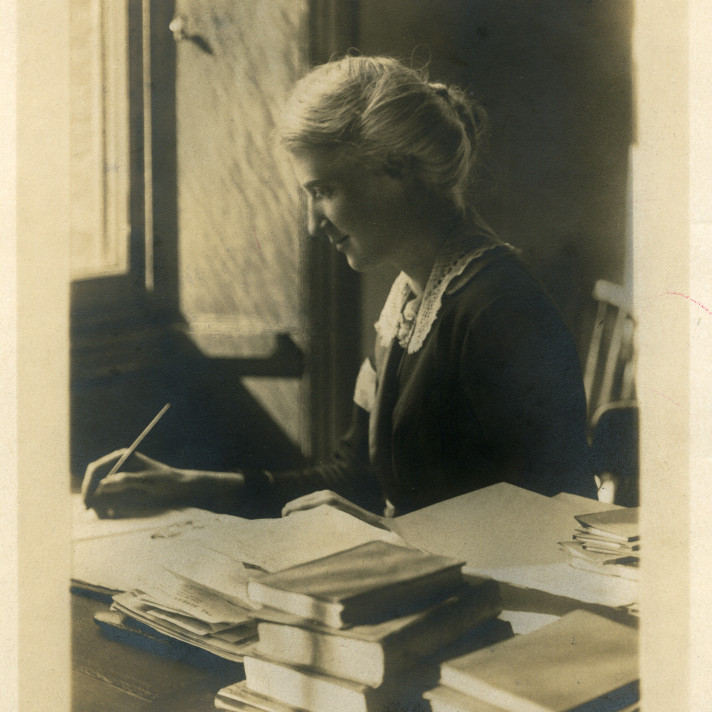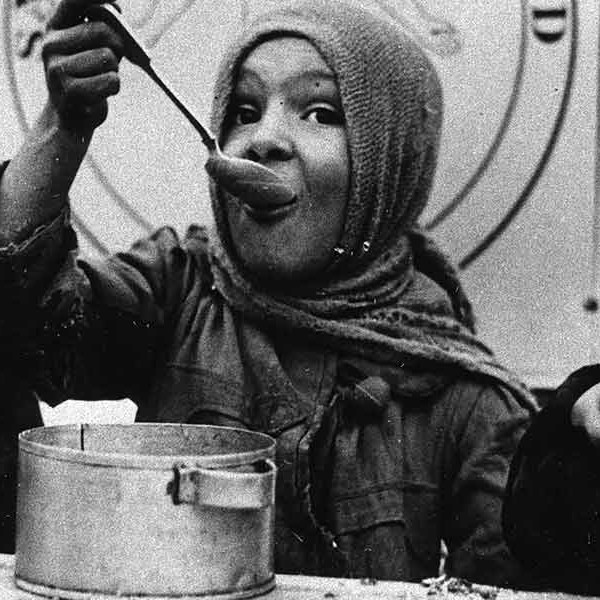Eglantyne Jebb, the woman who founded Save the Children in 1919 with her sister Dorothy, was one of the world’s most charismatic, fiercely intelligent and influential champions of human rights.
Who was Eglantyne Jebb?
Eglantyne was born in 1876 in England, into a prosperous Shropshire landowning family. The Jebbs were a family with a strong social conscience and commitment to public service. Having studied history at Lady Margaret Hall at the University of Oxford, Eglantyne trained as a school teacher, but a year’s experience as a primary school teacher convinced her that this was not her vocation. However, she never lost her interest in education, believing that it “should not just be for the clever few”.
As World War 1 ended, Eglantyne was appalled by newspaper photos she saw of children starving in enemy countries such as Germany and Austria – starving because Allied troops’ blockades wouldn’t let supplies through. She and Dorothy launched the Fight the Famine Council, a group working to get food and medical supplies to these children. She stood in London’s Trafalgar Square in April 1919 and handed out leaflets that showed the emaciated children with a headline: “Our blockade has caused this – millions of children are starving to death”.


The legacy she left
Eglantyne’s passion that day led to her being arrested, and she was found guilty and fined £5 for her protest. But the public prosecutor at her trial was so impressed with her commitment to children that he paid her fine. His £5 became the first donation to Save the Children. More followed at a public meeting at the Royal Albert Hall on 19 May 1919, where Eglantyne’s and Dorothy’s impassioned pleas for the starving children of Europe were met with a huge response. Large amounts of money were raised and the Save the Children Fund was launched.
Two years later, Save the Children was making a difference to the lives of children beyond war-torn Europe. Russia was experiencing famine following the devastation of war, revolution and civil war and a drought that had brought crop failure. Millions of children were dying. Save the Children joined the International Committee for Russian Relief and Eglantyne began fundraising in Britain with full-page newspaper advertisements and a fundraising film shot in the famine area. In September 1921 a cargo ship was chartered to carry 600 tons of lifesaving food and medical supplies to Russia. Save the Children set up feeding stations and provided daily meals to more than 300,000 children and 375,000 adults, an impressive feat of international negotiations and logistics that informed Save the Children’s future international aid work.
Eglantyne left another enduring legacy to the world’s children. In 1923, in Geneva, she drafted her Declaration of the Rights of the Child, which was adopted a year later by the League of Nations as the Geneva Declaration. This ground-breaking document affirmed that children had rights and spelled out the responsibility that all nations have to protect their children. Eglantyne’s Declaration inspired the 1989 United Nations Convention on the Rights of the Child, today’s most universally accepted human rights treaty.
Eglantyne suffered from ill-health for many years and died in Geneva in 1928, aged 52. Today, Save the Children works in more than 120 countries, including New Zealand, to realise her vision of a world where every child receives a healthy start, a chance to learn and protection from harm.

